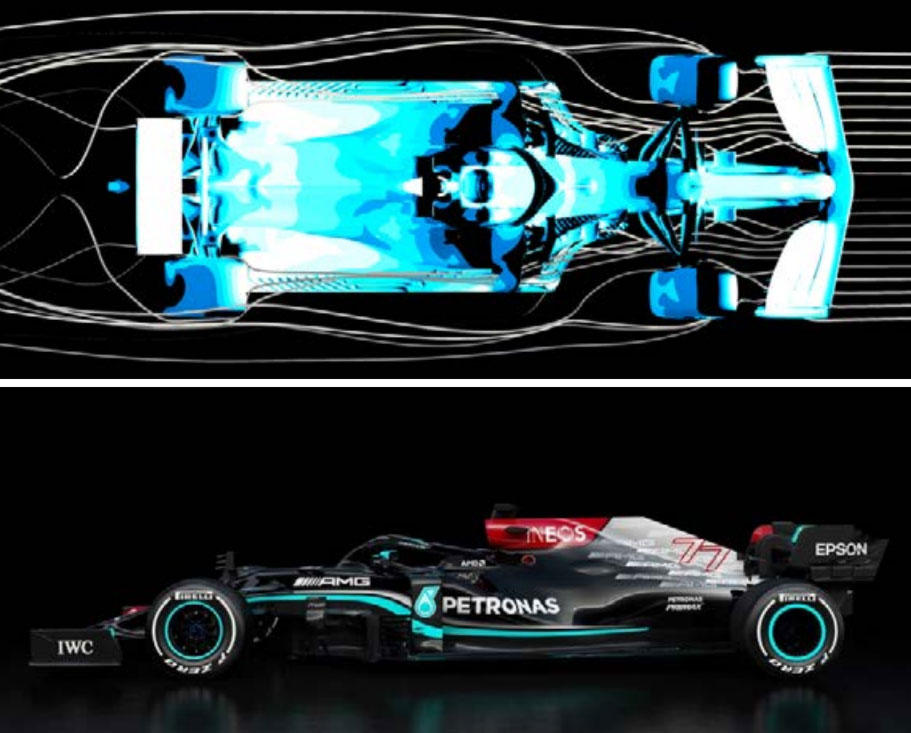AMD Epyc Servers a Key to Mercedes' F1 Team Success
Epyc Rome processors are great at aerodynamics calculations
Today AMD highlighted its contribution to the highly successful Mercedes-AMG Petronas Formula One (F1) Team. In brief, second generation AMD Epyc processors have been instrumental in speeding up computational fluid dynamics (CFD) workloads, an important contributor to F1 race team success. AMD says that by using servers based on its processors, the race team has cut workload times in half, at 20% better efficiency, compared to the previous three-and-a-half-year-old system from another vendor (no, not Arm, wink-wink).
A blog post by AMD reveals that computer modeling of aerodynamics and CFD performance is a fierce area of competition for F1 teams. "Design iteration turnaround time is of great importance," Simon Williams, Head of Aero Development Software for Mercedes-AMG Petronas F1, said. Williams went on to explain that the leap in speeds when upgrading to the AMD-powered system was a lot more than the "past one or two percent gains seen with previous systems." Furthermore, the new systems are claimed to be 20% more efficient.
It's great to hear that a faster server using new technology is so beneficial, if not vital, to F1 racers in 2022. However, there are other factors one might not have expected race teams have to consider, which AMD provided a helping hand with.
F1 race teams have to comply with various expenditure, computer time, and process iteration quotas aiming to keep the sport fair and not open to domination simply by the team with the deepest pockets. A case study shared by AMD says that there is a moving set of restrictions, which makes things even more complicated for competitors.
In 2022 there is a cap of $140 million on computational resources spending, which includes the money spent on servers. There are also limits on how many wind tunnel hours an F1 team can make use of, and how many CFD geometries can be calculated over an eight week period. Where processing speed is important is to allow for aerodynamicists to get more results back on any race day, so they can work through more iterations when they feel they need to and be ready to apply changes between races.
Things aren't going to get simpler with regard to the regulations. Going forward, the F1 ruling body, the Fédération Internationale de l'Automobile (FIA), has decided to reduce the number of CFDs that can be run depending on a team's racing success. This year there will be a spread of 64% between the number of CFDs a team can run depending on whether they are at the top or bottom of the championship rankings. Mercedes-AMG Petronas F1 finished top in the 2021 season, so it will have the smallest allocation as they start the new racing season.
Get Tom's Hardware's best news and in-depth reviews, straight to your inbox.

Mark Tyson is a news editor at Tom's Hardware. He enjoys covering the full breadth of PC tech; from business and semiconductor design to products approaching the edge of reason.
